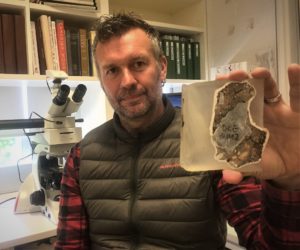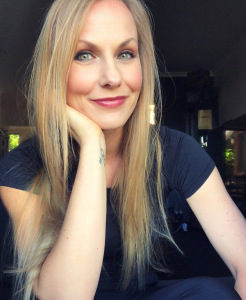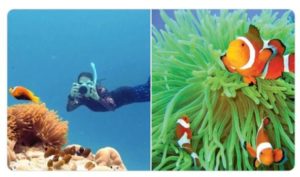
A research paper ranks among 2019’s most downloaded reports, new films and books win recognition, and marine biology students secure significant funding.
Attracting maximum downloads

Flinders University ARC Future Fellow, Associate Professor Mike Morley, was among the authors of a research paper identified by Nature Publishing’s Scientific Reports journal among its most downloaded earth science papers published in 2019.
The paper – ‘Hominin and animal activities in the microstratigraphic record from Denisova Cave (Altai Mountains, Russia)’, by Mike W. Morley, Paul Goldberg, Vladimir A. Uliyanov, Maxim B. Kozlikin, Michael Shunkov, Anatoly Derevianko, Zenobia Jacobs and Richard Roberts – was ranked at number 15 (and leading archaeology paper) in the Top 100 for its recently published review of 2019.
It also attracted significant national and international media interest when it was initially published by Scientific Reports in September 2019.
Earlier this year, the same research group published another related article entitled ‘Archaeological evidence for two separate dispersals of Neanderthals into southern Siberia‘ in PNAS.
New volume of fantasy tales issued

Dr Lisa Bennett, Senior Lecturer in English and Creative Writing, is celebrating the successful launch of her latest book – Songs for Dark Seasons, issued by Australian independent publishing house Ticonderoga Publications.
This release continues a prolific output for Dr Bennett, who writes under the pen name of Lisa L. Hannett. It joins her four other books, 16 stories published in magazines and journals, and her stories featured in more than two dozen anthologies.
The 13 short fantasy stories featured in Songs for Dark Seasons form a suite that takes readers back to the lonesome dream counties that the author first introduced in Bluegrass Symphony, a 2002 collection of short stories which was nominated for a World Fantasy Award.
Short film gets big WHO recognition
The Cochrane Files – a short film produced by Flinders University Screen Production lecturer Helen Carter and written and directed by midwifery student Caitlin Hall – has been selected as a finalist in the WHO Health For All Film Festival.
WHO invited filmmakers to submit a short film for one of three categories: video reports, animation or nurses and midwives – recognising that 2020 is the International Year of the Nurse and the Midwife.
From the total of 1265 entries submitted from 119 countries, The Cochrane Files is among 15 films shortlisted in the Nurses and Midwives section.
Dr Tedros Adhanom Ghebreyesus, Director-General of WHO, will select the winners soon but has already expressed his delight at the response to the award.
“The volume, quality and diversity of entries for the Health for All film festival far surpassed our expectations,” said Dr Adhanom Ghebreyesus.
“I am incredibly encouraged by the appetite among film-makers around the world, both amateur and professional, for telling public health stories.”
For more information about the film awards, visit the website.
 Marine biology students win funding
Marine biology students win funding
Four Flinders University students have secured Holsworth Wildlife Research Endowment fund research grants. Thomas Clarke, Joshua Dennis, Cassie Hoepner (pictured left) and Jonathan Syme from the College of Science and Engineering Marine and Coastal Research Consortium will use the funding to conduct their respective research into yellowtail kingfish, cage shark diving, dolphins, and ‘clownfish’ or anemone.
PhD candidate Tom Clarke’s study is into the spawning behaviour and movement patters of yellowtail kingfish in South Australia and Joshua Dennis is researching the effects of cage-diving on trevally activity.
Cassie Hoepner is exploring how anemonefish can survive in the toxic environment of their anemone hosts, using proteomics. “We know aemonefish produce a mucus layer that acts to protect them from the anemones venom, but the mechanisms of how it is produced and how it protects the anemonefish is not yet confirmed,” she says. “This research is significant as it utilizes, for the first time, Matrix-assisted laser desorption/ionization time-of-flight (MALDI-TOF/TOF) mass spectrometry (MS) techniques to explore in a holistic way the mucus proteome of anemonefish.”
Jonathan Syme’s research is into the behavioural ecology of mixed-species groups of Australian humpback dolphins and Indo-Pacific bottle nosed dolphins.
Dr Bill Holsworth is a renowned ecologist, mammalogist, wildlife biologist and philanthropist. In 1989 Bill and his wife Carol established the Holsworth Wildlife Research Endowment to fund grants to universities for postgraduate students in fauna and flora.

